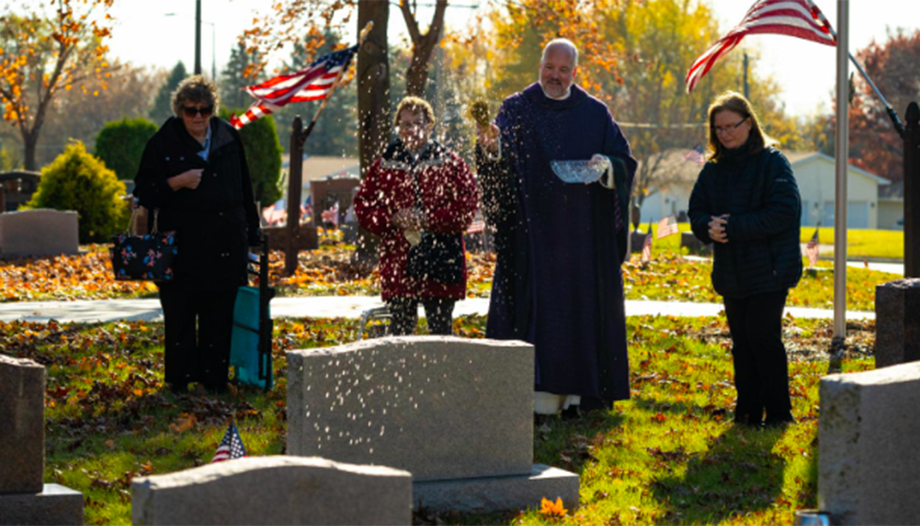The ashes of mortal remains may not be transformed into jewelry, nor may they be scattered in the air, sea or land. Nor are alkaline hydrolysis and human composting processes acceptable as alternative techniques to burial or cremation.
These issues are part of the points addressed by the U.S. bishops in the document titled "On the proper disposition of mortal remains."published in March 2023.
The text was prepared by the bishops who are members of the Committee on the Doctrine of the Faith. North American Conference of Catholic BishopsDaniel Flores, Bishop of Brownsville, Texas.
Using the deceased as compost
In recent years, especially in the United States, several companies have emerged that offer to convert the mortal remains of a person into diamonds or other objects. To these practices have been added other techniques that are contrary to faith: the alkaline hydrolysis technique and human composting.
The first consists of a process by which the human body is placed in a metal container containing a chemical mixture of water and alkali to be subjected to high temperatures and pressure in order to accelerate its decomposition.
Within hours, the body dissolves, leaving only a few skeletal remains; these, once reduced to powder, can be given to relatives to be used as fertilizer. However, the remaining liquid is treated as sewage and discharged into the sewer.
Under the human composting technique, the body is placed in a metal box along with different vegetables which encourage the growth of microbes and bacteria. To accelerate the decomposition process, everything is subjected to a heating process. After a period of about a month, only a compost remains that can be used to fertilize lawns or other vegetables.
In view of these techniques, which are contrary to the Catholic faith, the bishops warn that both alkaline hydrolysis and human composting do not respect the human body because, since the human body is totally disintegrated, there is nothing distinctive of the human person left to be placed in a coffin or in an urn that can be placed in a sacred place for the faithful to pray in memory of the deceased.
Alkaline hydrolysis, human composting, scattering ashes in the air or sea or land, turning them into diamonds, or even having the ashes of a deceased person spread in one or more houses, are actions contrary to the respect for mortal remains demanded by the Catholic faith, say the U.S. bishops.
Cemeteries or columbaria for ashes
Quoting the Catechism of the Catholic ChurchThe American bishops recall that the Church considers burial to be the most appropriate way to dispose of the body of the deceased. "The Church strongly advises that the pious custom of burying the body of the deceased be preserved. It does not, however, forbid cremation" (CCC, 1176 § 3). In the latter case, the U.S. bishops' document states that the basic requirements for the respectful and proper disposition of ashes is that they be placed in a sacred place, such as cemeteries, columbaria, or church crypts and mausoleums. In this way, respect for the remains of the deceased is expressed and our Christian hope in the resurrection of the dead is manifested. "Our full humanity includes our corporeality. Therefore, we are obliged to respect our body throughout our lives and to respect the body of the deceased once their earthly existence has come to an end. The way we treat the bodies of our dearly departed loved ones should bear witness to our faith and hope in what God has promised us."












